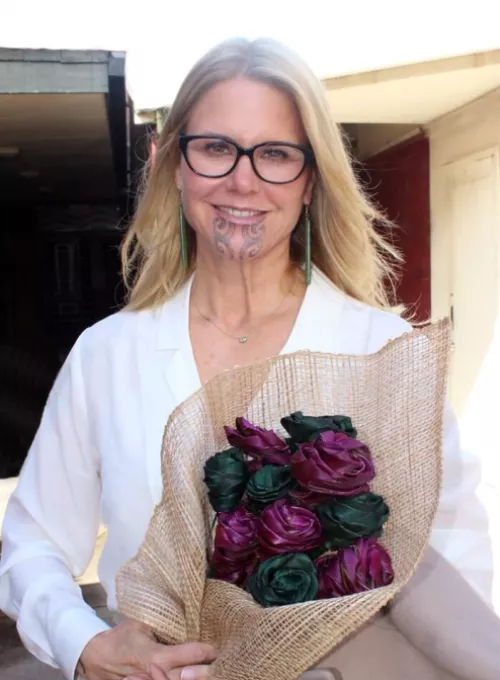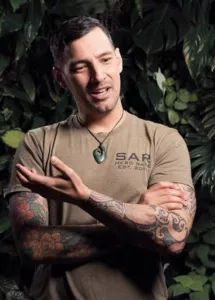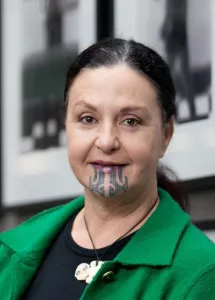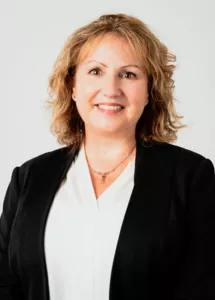
Hinemoa is a fierce advocate for te reo Māori and a fluent speaker. She attributes her success to ‘hard work, determination, and being able to draw from her Māori heritage, synthesising meaning from an indigenous perspective’. Most proud of her service to the community, acknowledging reward in ‘making a difference’, she is passionate about her work and the people she works with.
Hinemoa started out as an actress and television personality. Motivated by her mother being diagnosed with breast cancer, Hinemoa enrolled at the University of Auckland in medicine, and in 1999, after graduating with an MBChB, she went on to specialise in child and adolescent psychiatry. She worked as a youth forensic psychiatrist from 2007 until 2011 and completed her post-graduate certificate in forensic psychology. Her PhD1 focused on the development of tikanga approaches for Māori tamariki (children) who experienced traumatic brain injury (TBI) inclusive of whānau and professionals that work with them. In 2014, Hinemoa was awarded the prestigious Health Research Council of New Zealand Eru Pomare Post Doctoral Fellowship, enabling her to extend the work of her doctorate.
One of only a handful of child and adolescent psychiatrists specialising in TBI affecting tamariki and taiohi (youth), Hinemoa is a Fellow of the Royal Australia and New Zealand College of Psychiatrists and on the Māori Advisory Committee of the Centre for Brain Research. Internationally, she participated in a neurological research think tank at the University of Deusto, Spain (2015), which aimed to strengthen international collaborative research partnerships. She has contributed to the development of mental health services and participated in several Ministry of Health reference groups, including the expert advisory group of Blueprint II, the framework for New Zealand mental health service funding for the next 10 years.
Highly regarded by those she has helped as well as her peers, Hinemoa has maintained a private practice where she specialises in neuropsychiatric assessment and treatment for tamariki, taiohi and their whānau who have experienced TBI. When she is not working or immersed in her research, she lives with her husband at their home on Waiheke Island, where they own a successful indigenous-inspired café business.
[1] Elder, H. 2012. Tuku iho, he tapu te upoko. From our ancestors, the head is sacred : Indigenous theory building and therapeutic framework development for Māori children and adolescents with traumatic brain injury. Wellington: Massey University. http://hdl.handle.net/10179/4065
Current roles:
Professorial Fellow in Indigenous Mental Health Research and Director of Te Whare Mātai Aronui, Te Whare Wānanga o Awanuiārangi
Māori Strategic Leader, Brain Research New Zealand - Rangahau Roro Aotearoa, University of Auckland
Dr Sylvia van Altvorst



